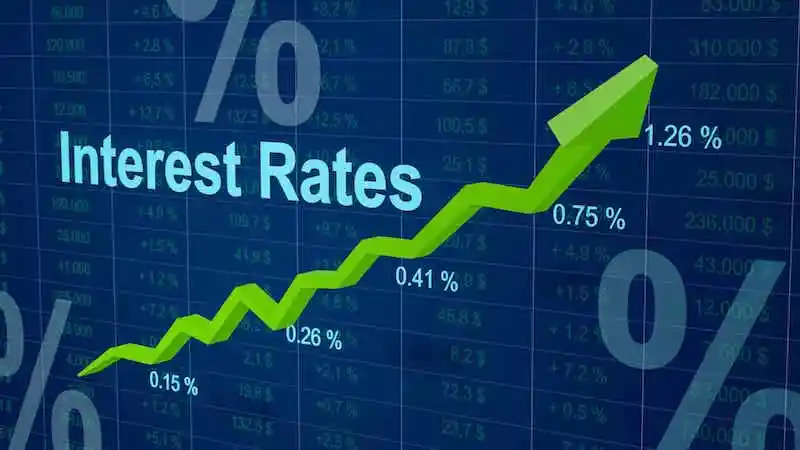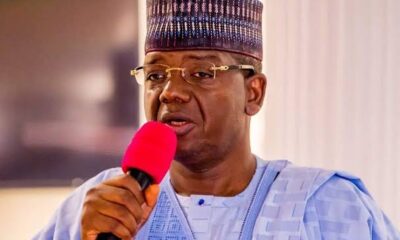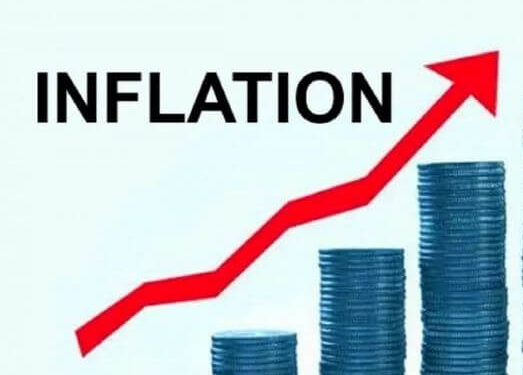The decision of Nigeria’s central bank’s Monetary Policy Committee to raise the country’s benchmark interest rate has alarmed members of the organized private sector and economists alike, some of whom believe it will severely impair the ability of business operators to repay their debts.
The decision of the committee was declared by Olayemi Cardoso, the governor of the Central Bank of Nigeria and chairman of the MPC, after the latter’s 295th meeting on Tuesday.
The interest rate was increased by 150 basis points by the MPC, from 24.74% to 26.25%. The benchmark interest rate increased for the third time this year on Tuesday with the MPR boost.
The policymakers raised the MPR by 750 basis points since the MPC reconvened in February. In February, the MPR jumped from 18.55% to 22.75%, a 400 basis point rise. In March, it was raised by 200 basis points to 24.75%.
Cardoso said, “The key focus of the MPC at this meeting remained to achieve price stability by effectively using tools available to the monetary authority to rein in inflation. Members observed that while year-on-year headline inflation in April 2024 rose moderately, the month-on-month measures of headline, food and core all declined significantly. This follows a decline (month-on-month) of headline and food measures in March 2024, suggesting that the recent tight monetary policy stance of the Bank is beginning to yield the desired outcomes.”
Cardoso added, “For the first time since October, we have seen a relatively significant moderation in the rate of increase and that is working. I believe very strongly that the tool that the central bank is using is working. I have said it before, there is no magic wand, these are things that need to take their own time. I’m confident and the figures show that we are beginning to get some relief and I believe in a couple of more months, we will see some positive reports on the effects of what the CBN is doing.”
Cardoso defended the decision to raise the MPR once more during a press conference on Tuesday following the MPC meeting. In the face of an uncertain economic environment, the MPC has remained hawkish in its approach to combating inflation.
Nigeria’s inflation rate increased to 33.69% in April. As compared to the headline inflation rate for March 2024, the National Bureau of Statistics reports that the headline inflation rate for April 2024 increased by 0.49 percentage points.
According to the NBS, the headline inflation rate increased by 11.47 percentage points year over year from the 22.22% rate reported in April 2023. In April 2024, food inflation was 40.53%. Cardoso stated that the MPC has connected the ongoing naira volatility to the principles of the free market.
“Members further observed the recent volatility in the foreign exchange market attributing this to seasonal demand, a reflection of the interplay between demand and supply of a freely functioning market system. The committee also noticed the marginal increase in the foreign reserve between March and April 2024,” he said.
Segun Kuti-George, National Vice Chairman of the Nigerian Association of Small-Scale Industrialists, denounced the Interest Rate Increase by MPC. At a time when many firms were depending on loans to operate, Kuti-George argued it was callous to keep rising interest rates.
He said, “That is the only thing they know. The only thing they know is to increase the interest rate. As long as the industrial sector cannot access cheap funds, we are joking. We cannot be talking about economic development.”
In addition, Gabriel Idahosa, the president of the Lagos Chamber of Commerce and Industry, who disagreed with the rate hike, charged that the CBN was employing the incorrect measure to combat inflation.
Idahosa said, “The CBN is like a farmer that does not have any other tool. So, they are stuck with one tool. We just came out of a consultation session and this was the issue. The CBN is driving a metric that is not related to the problem.
“The problem is the cost of production. It has nothing to do with interest rates. It is not advisable to keep raising the interest rates, but they have run out of ideas and they don’t want to be seen to do nothing.”


 VenturesNow1 day ago
VenturesNow1 day ago
 VenturesNow1 day ago
VenturesNow1 day ago
 VenturesNow1 day ago
VenturesNow1 day ago
 Politics1 day ago
Politics1 day ago























